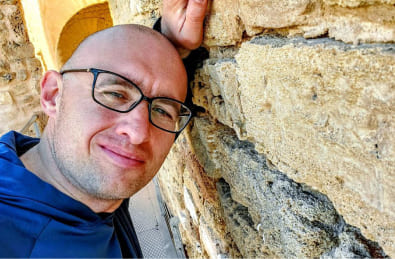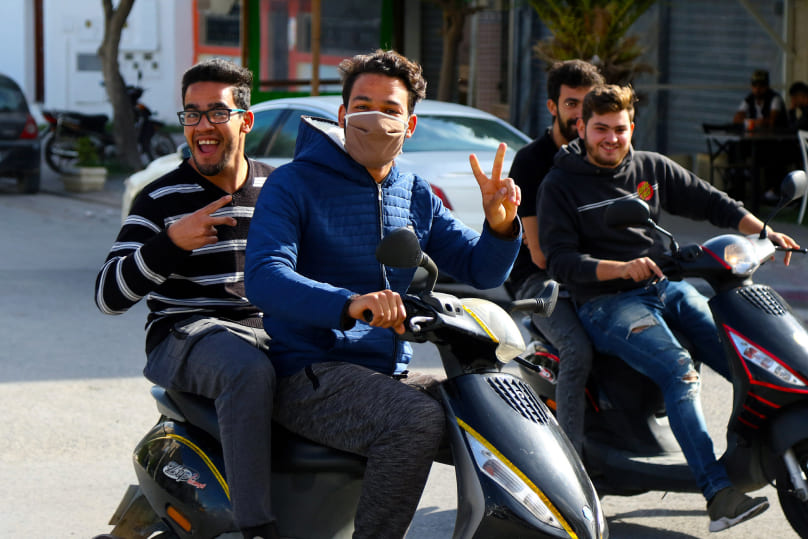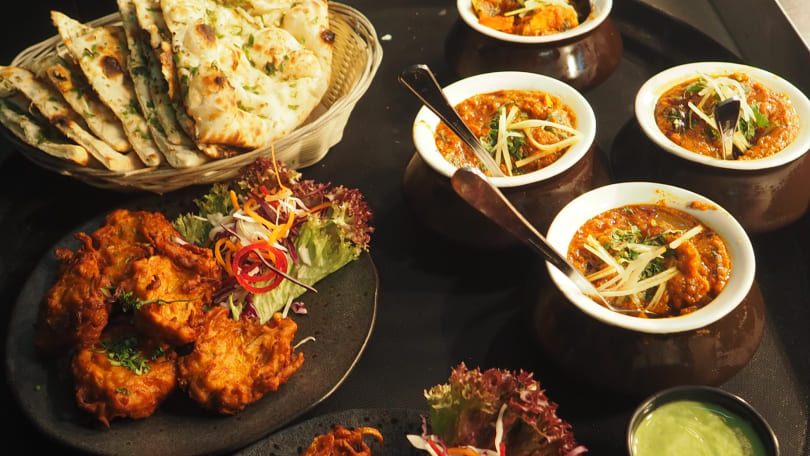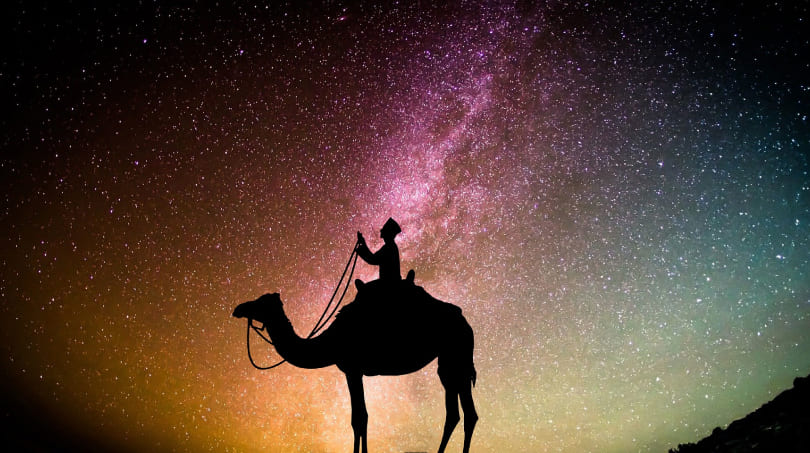A European in Tunisia: I Follow Traditions and Observe Ramadan

The holy month of Ramadan is marked by fasting which is mandatory for all healthy adult Muslims. Ramadan begins during the ninth month of the Islamic lunar calendar when the new crescent moon is first sighted. Ramadan shifts every year in accordance with the moon, that’s why Muslims experience it in different seasons throughout the course of their lives.
Fasting during the holy month is one of the five pillars, or duties, of Islam which are key practices that Muslims are obligated to fulfill throughout their lifetime. At the end of Ramadan there’s a big three-day celebration called Eid al-Fitr or Eid Sghir in Tunisian dialect of Arabic language. Traditionally, Eid al-Fitr or the Festival of the Breaking of the Fast begins at sunset on the last day of Ramadan. Muslims pray the holiday prayer in congregation in the morning, visit family and friends, and celebrate over food, gifts and activities for children.
Anyway, Ramadan has just begun, so we’ve decided to learn more about the holy and one of the most important months of the year from the Chief of the Carthage Group Excursion Service Department, Alex Peremot. He’s a European who has been living and working in Hammamet in Tunisia for many years and who keeps the fast together with his friends and colleagues, while not being Muslim.
Why are you observing Ramadan if you’re not Muslim?

I’ve really been fasting during Ramadan for many years. For Muslims it’s meant to be a time of spiritual and physical healing, finding a sense of peace, deep contemplation of one’s relationship with God, extra prayer, increased charity and generosity. It’s also a time of celebration and joy, to be spent with loved ones.
It seems to me that following the traditions of the country where you live is a perfect way to understand its people better and immerse yourself in local culture.
Here’s an example. Every evening in Ramadan, a few hours before dinner all the men in Hammamet go to buy fresh bread. At the bakery near my house they line up in a long queue, quite a lot of people come: there are fathers with their sons, grandads and their grandsons. It’s much more interesting to take part in conversations while standing in this queue, when you belong to the community not in words or speech but in deeds.
What exactly do Tunisian men talk about during the holy month?
When waiting in bread queues, they discuss various things. You can learn the latest news, hear lots of funny stories and urban legends.
However, as for communication with Muslims in general, not only during Ramadan, I don’t recommend talking about politics and women in order to avoid misunderstandings. The best topic to spark a good conversation is football.
Isn’t it a sin to discuss football clubs, players and matches during Ramadan? Such discussions usually involve intense emotions, strong passions…
In Tunisia, talking about football is the easiest way to get in contact at any time. It’s a very popular kind of sport. Even in Ramadan you can go to watch football tournaments to cafes which are kind of men’s clubs here.

It’s a common practice when half of the cafe visitors are rooting for their favorite team while the other half is watching TV series that are usually shown in Tunisia during Ramadan. Mostly they are films on everyday life topics: dramas, detective movies, and light comedies. Moreover, cafe visitors can play cards, backgammon, chess, or checkers, such table games are also not considered to be sinful. Men stay in cafes till midnight or a bit longer, it’s the main entertaining activity after dinner which is supposed to be had only at home during Ramadan when people gather with their families and closest relatives, enjoy delicious home-made meals and spend time together.
You’ve mentioned men, but what does the beautiful half of Tunisian society do in Ramadan?
It depends, but if I try to point out something in common, I’d say that many women pay special attention to cooking. They make dishes that can be served any time of the year but in Ramadan eating them is obligatory.
Every hostess has her own cooking secrets. I think they find it pleasing to serve delicious meals in order to delight their families and close ones and demonstrate their cooking skills to the neighbors.
Well, it is known that Tunisian women have male competitors in the kitchen too. For instance, like in the Boukadida family that we interviewed last year. The father of their family adores cooking and he really doesn’t like any attempts to take away the role of the chef from him. He completely challenges the stereotype of Muslim husbands: he can cook, bake and roast various foods by himself… And what do you like most? What are traditional Ramadan dishes?
First of all, it’s brik, a stuffed Tunisian filo pastry. For example, they make triangular briks with soft–boiled eggs or briks called «Fatima’s fingers» which are really similar in size and shape to small fingers, stuffed with onions, potatoes and other fillings.
Second, they usually cook a Tunisian chorba, which is a tomato soup in meat broth with vegetables. Many people like the so-called ‘red’ pasta – pasta with tomato sauce and tuna. Of course, they cook couscous, as well as traditional sweets, such as tiny donut-shaped kaa’k yoyo, various semolina pastries and zlabia which are deep-fried dough in pretzel or circular shapes, dipped in a syrup of honey.
They cook so many dishes! But what about observing the fast? Ramadan is a time of abstinence, isn’t it?

Yes, it is. Practicing Muslims observe fasting from dawn to sunset. It’s recommended that before sunrise (around 4 o’clock in the morning or earlier) Muslims eat a prefast meal consisting of fruits, dates and other appetizers. After that they don’t eat or drink anything — including water — until they break their fast after sunset for the evening meal, called iftar, taken around 6 o’clock in the evening.
After the Grand Mufti announces the beginning of Ramadan, Tunisian public organizations reduce their hours since fasting is quite difficult, people who observe Ramadan need more time to have rest and recover. Private businesses may also shorten the working hours if their owners decide to do it.
This year Ramadan ends before the tourist season begins, but how does it work when Ramadan falls on the months when many people go to visit Tunisia as tourists?
Tourism implies providing round-the-clock services, the quality of which may suffer rather badly in certain aspects due to the specifics of Ramadan restrictions. Refraining from food and water results in a greater burden on the body which not all the employees can bear. In order to avoid such situations, we impose a shift work schedule when it’s needed, so one staff member works at the first half of the day, and the other one works at the second half.
Moreover, Ramadan isn’t a reason not to use common sense. For example, during the Sahara desert tour tourist bus drivers have to drink water in the daytime, and they’re really allowed to do it because observing the fast while traveling isn’t obligatory according to the Quran.
What other prohibitions are there during Ramadan?
From dawn to sunset Muslims are to abstain not just from eating any food and drinking any liquids, but also from smoking cigarettes and swearing. Salah (a prayer) is performed as usual, five times a day, plus the Jum’ah, a congregational prayer on Fridays in accordance with the Quranic verse.
I’m not Muslim, so I don’t take part in prayers and don’t attend the mosque. However, thanks to my profession, I’ve visited almost all the mosques in Tunisia, I was lucky enough even to climb the minaret of the Great Mosque of Kairouan. My good friends showed me such corners and hidden places that not every practicing Muslim has been able to see.

Are Tunisians strict about observing religious practices during Ramadan? Is it true that chewing gum is also prohibited? Are there penalties for not observing Ramadan restrictions publicly?
However, there’s a subtle but a very important nuance. In different parts of the country observing Ramadan rules is treated in different ways.
Thus, as for the northern coastal region, public morals and customs aren’t so strict. Multinational towns and cities are located there, many travelers, including European ones, have been coming to the region for centuries. Some people have relocated to Tunisia, that’s why coastal areas can be considered to be multicultural. In resort cities locals are used to the fact that non-Muslims may follow other customs and traditions.
In the south, in the Sahara region, the morals are much more traditional. Bedouins and Berbers have always been rather isolated and still contact Europeans quite warily. Of course, nobody will be punished for eating during daylight hours in Ramadan but be ready for public condemnation. In the south, as well as in small towns around the country, you won’t be able to find any open cafes during the holy month. On the contrary, in the capital city of Tunis there are open cafes and restaurants even in the city center.
Going to a Muslim country, no matter during Ramadan or not, you should bear in mind that minis and showing off your cleavage will be appealing to all the local residents. Unusual behavior can be confusing and encourage aggression.
However, the above mentioned recommendation is applicable just to walks outside the hotels in small towns. In the capital of the country and big resort cities people dress the same way as in Europe. The same refers to other restrictions.
As for interaction, Tunisians are always happy to smile and smile back. They are very friendly and hospitable people, so it’s a pleasure to travel around Tunisia and get to know these people.

